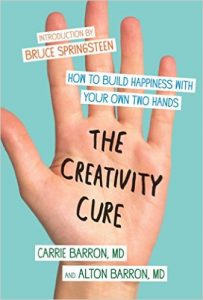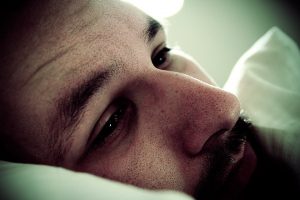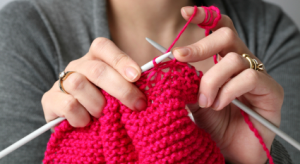Dr. Carrie Barron, a board-certified psychiatrist/psychoanalyst on the clinical faculty of the Columbia College of Physicians and Surgeons who also has a private practice in New York City. She has published in peer-reviewed journals, won several academic awards, and presented original works related to creativity and self-expression at national meetings of the American Psychoanalytic Association. Along with her husband, Alton Barron, M.D., a hand and shoulder surgeon, she co-authored the book, The Creativity Cure: How to Build Happiness with Your Own Two Hands.
Dan:
Why is depression such a problem in our culture?
Carrie:
I think the level of stress has gone up enormously because we have so much to do and we’re on twenty-four hours a day. So I think because of technology, which offers us so many great things, but gives us much to do. I think that’s part of it. I also think, especially for children, we’re in a striving, ambitious, be productive all the time mentality – for children and adults. We need to play, we need to hangout, we need to have spontaneous time. I think spontaneous thought does a lot for alleviating depression and anxiety.
Dan:
We have so many different words in our culture for unpleasant experiences. We might say things like, “I’m sad,” “I’m burnt-out,” “I’m stressed-out,” or “I’m depressed.” But what is the difference in your mind, as a clinician, between sadness, say, and depression?
Carrie:
Sadness is a normal emotion. We don’t have to treat everything and be afraid of sadness. We don’t have to pathologize everything. There is a range. I mean, life can be very hard and it’s appropriate not only to have it, but let yourself have it. Sometimes it is actually moving towards the authentic feeling, rather than running away from it, that actually makes it go away. You first have to experience it, and then when you understand it, and you’re in it, it runs its course. Now, this is separate from a true major depression where you can’t get up in the morning. That’s another story. But sadness is a normal part of life.
Dan:
In your clinical practice, how often would you say depression has played a role in why people have come to see you?
Carrie:
I think it plays a role often. The categories that we have in the DSM-5, I think they’re useful so that clinicians can communicate with others. But nobody is fully described by a category or diagnosis. There’s a lot of overlap. When people are depressed, they’re also often anxious and also stressed, and sometimes it’s more one than the other. But depression does come up a lot for people and it’s very painful. I think not being able to get up in the morning, not feeling like doing anything, not being able to enjoy the sunny day or the view of the water, or whatever else people are getting into, it makes you feel very separate and alone when you are depressed and other people around you are not. So it has, kind of, a trickle-down effect, too.
Dan:
Why did you write the book, The Creativity Cure? I found it such an interesting book, a fascinating read. You wrote it with your husband who is a surgeon. Can you tell our audience why you wrote it?
Carrie:
There are two things. I talk about this now, I didn’t talk about this in the book, when I was a kid, I had some problems. I was depressed. I was anxious. We weren’t taking meds at that time. There was some chaos in my world. I really had to find a way to survive. When I look back on it now, all those things that I recommend in my book are things I was doing, or trying to do, like using my hands. I would cook a lot. I would take long walks. Then, later in my practice, maybe ten years ago, patients were saying, “You know, I went home and I fixed my sink and I became euphoric! I felt great!” I started to realize that meaningful hand use has a lot to do with happiness. And yet, because so much of what we do now is accomplished with a click on a device, we’re deprived of the process. And process, being deeply immersed in making, or making music, brings with it the possibility for euphoria, and satisfaction, and feeling good about living. So creativity is really about a way to have an optimal life. How you define creativity is another matter.
Dan:
What’s going on in the body, in particular, the brain when someone is struggling with depression? And how does creative action interact with that?
Carrie:
I think a lot of studies have been done, and serotonin and neurotransmitters, there’s a depleted state, and that we need to boost it up with medication or activities that do the same. Vigorous exercise can create the same biological state that antidepressants can. I want to qualify this and say that one must see their physician and make an informed decision, but certainly exercise can help a lot. Also, meaningful hand use has been shown to boost mood. Dr. Kelly Lambert wrote a book, Lifting Depression: A Neuroscientist’s Hands-On Approach to Activating Your Brain’s Healing Power, and she was the one who talked a lot about how purposeful hand use can affect brain chemistry and make people feel happier.
Dan:
What would be some examples of using your hands? When we think of creativity, many people might think of painting, for example. They might say to themselves, “Well, I’m not a good painter,” or “I don’t play an instrument.” But creativity isn’t really limited to that. Can you expand on that?
Carrie:
Sure. I am so glad you asked that. I think this is the crucial question. And I think you hit the nail on the head. A lot of people say, “I’m not creative.” Well, first of all, I think we’re all born creative. It’s a matter of finding what you can do. It can be applied to business. You can be amazing. You could be a genius at figuring out what the team needs to be. That’s very creative. You could be an amazing cook. You could have a tremendous talent for decorating. Gardening, the design of a garden. It doesn’t have to be on a professional level. It’s really a matter of figuring out what you can get into. You may find that if you put some time into mastering a skill that you find a certain pleasure and freedom with it. That could be something like painting, but it doesn’t have to be. Knitting, crafting, it could even be fixing things. All of that involves meaningful hand use.
There are many definitions of creativity. My definition of it is allowing most natural self to emerge to make a positive contribution. It’s allowing you a freedom, a spontaneity in the way that you live, a feeling of safety that allows you to do that so you’ll throw out an idea, you’ll say something funny in conversation, so that you are just yourself and it works. That’s really optimal living.
Dan:
You talked earlier about when you were younger and growing up having some difficult childhood experiences and learning some creative coping skills. Myself, when I think about this, I had a very difficult childhood as well with an alcoholic, abusive father. Over time, I didn’t have what I would now think of as depression as a young adult. It developed more at midlife when I turned forty. It seems that there’s a lot of research that suggests that when people in their childhoods have difficult experiences, either emotional abuse, or physical abuse, or deprivation, there’s some kind of linkup with adult-onset depression. Have you found you found that in your experience?
Carrie:
Yea, I think so. I think because in certain ways when you’re in your twenties and your thirties and you’re striving, and you’re distracted and you have a strong goal, that, in and of itself, that kind of commitment to a goal or emotion can stave off certain aspects of your memory or your inner life and it might get triggered in your forties. Maybe when you have a little bit more time to contemplate or think back. I will say that there are certainly ways, I just like to not be falsely optimistic, but be really optimistic and really encourage people to understand that there are ways to look into your particular history, your particular form of depression, and work with it to get to a much better place at any age.
Dan:
In your book, you talk specifically about not only being creatively engaged, but the use of one’s hands, a physical activity, and how that somehow connects to creativity, no matter your history, or the causes of your depression. This seems to work for just about anybody with depression or unhappiness. Would you say that’s the case?
Carrie:
I do. I think it’s mild or moderate depression. I think if you have a very severe depression, you might need some medical intervention or an intense therapy. But what I like to say is that if you develop a creative habit, it’s very useful to fall back on it when you are depressed. You may not be able to master a new habit when you’re severely depressed, but if you’re mild to moderate, and you work on your knitting, or you work on your painting, or you go into the kitchen and you are inventive about your cooking, it really can shift mood, but not if you’re in a very crippled state. In a crippled state, you need to get to, sort of, a better place, and then use the creativity after that.
Dan:
You’re living in New York City, but you’re soon to be on the move. Tell us a little bit about that.
Carrie:
I’m very excited because I am going to be moving to Austin, Texas soon. I’m going to be involved in, and working with the great people to try to develop a creativity/wellness program together. I’m not sure exactly, I haven’t submitted a proposal to them about human flourishing and aspects of human flourishing, but from my research, I outline 10 principles that are based on scientific research, but also on ancient philosophies that really help people with optimal living. Most of those are, actually, linked to creativity and linked to better health. So I’m really excited to get to work with people there.
Dan:
You actually have a website. Where can our podcast listeners and readers find you?
Carrie:
At carriebarronmd.com and we have a pretty active Facebook page has a wide following. People make lots of comments and have lots of pretty interesting things to say on that. So that might be a place to look. And I do have an active Psychology Today blog. I try to keep it lighter for Facebook, kind of short for my website. On Psychology Today, I try to deal with deeper, more complicated issues, but try to be useful.
Next Steps:
If you are interested in talking to Dan about CLE eligible trainings he offers law firms, call him at (716) 913-6309 or via our contact form. One-on-one coaching is also available for lawyers who need individualized attention. Go to Dan’s website Yourdepressioncoach.com to download his free book and schedule a consultation.













I really enjoyed reading this entry. I had battle depression since I was a kid and I have gone through a lot of traumas around that time. When I finally went to therapy in my adult years, therapists have asked, “how did you survive all these episodes by yourself with no therapy and meds?” I gave all credits to the arts and science. Music, drawing, and building computers as a kid was a creative outlook for me. Without it, I think I would have been dead. This article just somewhat confirms on something that I knew, but wasn’t too sure about. Anyway, thanks for sharing!
I was struggling for years with anxiety and depression and I was about to kill myself, but my friend got a program that helped me a lot a saved my life
Now I live my life to the fullest
take a look a this amazing program : https://bit.ly/2sF53uA